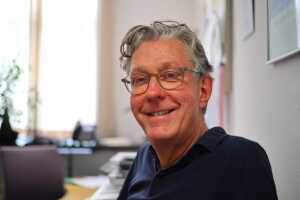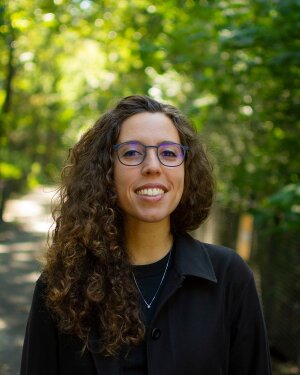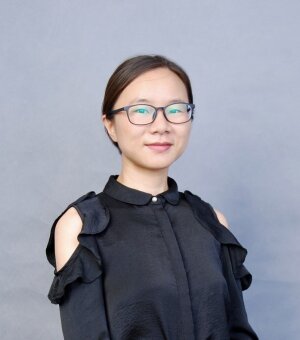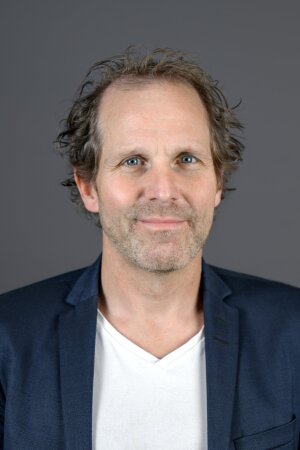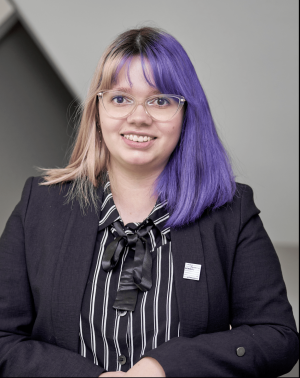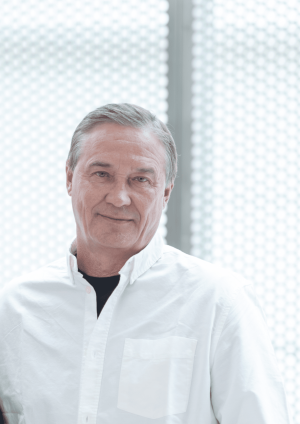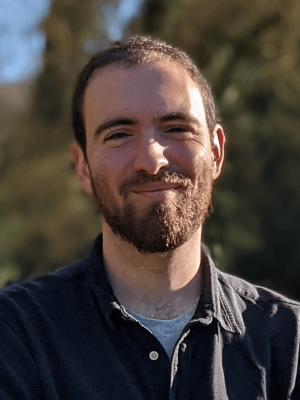Keynote Speakers 2025
Photo of Anders Kristensen
Image: PrivatProf. Dr. Anders Kristensen
Technical University of Denmark
Copenhagen, Denmark
Anders Kristensen received his PhD in Physics from University of Copenhagen in 1994. He was post-doc at Royal Holloway and Bedford New College, University of London 1994-1996. He won a “Talent Project” early career stage project from the Danish Independent Research Council to continue his career as “Research Assistant Professor” and “Research Associate Professor” at the Niels Bohr Institute fAPG, University of Copenhagen 1997-2001. He joined the Technical University of Denmark, DTU in 2001, and shifted research field from transport in low-dimensional structures to microfluidics and optics. His current position is Professor and Head of Section at Department of Health Technology - DTU Health Tech, where he leads the section for “Optical Sensing and Imaging Systems”. His research has focus on nano-photonics and their integration with micro/nano fluidics for new sensor and actuation technology, currently with emphasis on Raman spectroscopy and hyperspectral Raman imaging on blood and in-vitro models. Professor Kristensen is a Fellow of the Optical Society of America (OSA).
Photo of Prof. Chiara Trovatello
Image: PrivatProf. Dr. Chiara Trovatello
Politecnico di Milano
Milan, Italy
Born and raised in Siracusa, Italy, Chiara Trovatello moved to Milan, Italy, at the age of 18 for her studies in Engineering Physics and her PhD in Physics. During the PhD, CT visited the University of Wurzburg (Germany) and Columbia University (New York, USA). After the Ph.D., she returned to Columbia University as a Postdoctoral Researcher. She is now Assistant Professor of Physics at Politecnico di Milano, Italy, and Marie Skłodowska-Curie Global Fellow at Columbia University in New York, USA, working in the field of nonlinear optics and quantum optics with 2D materials.
Chiara Trovatello passionately advocates for open science, ethical research, equal representation and opportunities in STEM. She was the founder and the former president of the Optica Student Chapter of Milan. From 2024 she continues her strong leadership and mentorship activity as an Optica ambassador.
Photo of Dr. Xuemei Gu
Image: PrivatDr. Xuemei Gu
Friedrich Schiller University
Jena, Germany
Dr. Xuemei Gu is currently a Junior Research Group Leader at Friedrich Schiller University Jena, working at the intersection of Artificial Intelligence and Quantum Science. She received her PhD in Computer Science from Nanjing University, during which she was a visiting researcher at the Institute for Quantum Optics and Quantum Information in Vienna. She subsequently conducted postdoctoral research in experimental quantum information at the University of Science and Technology of China, and later focused on AI-assisted quantum science as an Alexander-von-Humboldt Fellow at the Max Planck Institute for the Science of Light in Erlangen.
Photo of Alexander Heisterkamp
Image: PrivatProf. Dr. Alexander Heisterkamp
Leibniz University Hannover
Hanover, Germany
Alexander Heisterkamp is a professor of physics at Leibniz University Hannover, specializing in applied quantum optics and biophotonics. His research focuses on laser-based imaging techniques, optical biosensors, and nonlinear light–matter interactions in biological systems. He leads interdisciplinary projects on cellular imaging, optical stimulation, and implant monitoring technologies.
Photo of Laura Padberg
Image: PrivatDr. Laura Padberg
Paderborn University
Paderborn, Germany
Dr. Laura Padberg received her PhD from Paderborn University in 2022 with a thesis on "Tailored devices for integrated quantum photonics." Since 2023, she leds the "Quantum Photonics Technology" group within Prof. Christine Silberhorn's "Integrated Quantum Optics" group at Paderborn University. Her current research focuses on integrated optics for quantum applications, bridging theoretical quantum concepts with cutting-edge technology to develop functional devices.
Photot of Prof. Vladimir Shalaev
Image: PrivatProf. Dr. Vladimir Shalaev
Purdue University
Indiana, USA
Vladimir M. Shalaev, Scientific Director for Nanophotonics at Birck Nanotechnology Center and Distinguished Professor of Electrical and Computer Engineering at Purdue University, specializes in nanophotonics, plasmonics, optical metamaterials and quantum photonics. Prof. Shalaev is a member of the National Academy of Engineering (NAE) and a member of the American Academy of Arts & Sciences (AAA&S). He has received several awards for his research, including the APS Frank Isakson Prize for Optical Effects in Solids, the Optica (formerly, Optical Society of America, OSA) Max Born Award for his pioneering contributions to the field of optical metamaterials, the Willis E. Lamb Award for Laser Science and Quantum Optics, IEEE Photonics Society William Streifer Scientific Achievement Award, Rolf Landauer medal of the ETOPIM (Electrical, Transport and Optical Properties of Inhomogeneous Media) International Association, the UNESCO Medal for the development of nanosciences and nanotechnologies, and the OSA and SPIE Goodman Book Writing Award. Prof. Shalaev is recognized as a Highly Cited Researcher in physics by the Web of Science Group for 8 consecutive years, in 2017-2024. He is a Fellow of the IEEE, APS, SPIE, MRS and Optica.
Photo of Romain Geneaux
Image: PrivatDr. Romain Géneaux
CEA-Saclay, Paris-Saclay University
Saclay, France
Romain Géneaux is a French researcher in attosecond science. He defended his PhD at Université Paris-Saclay in 2016, where he showed how to generate and use attosecond pulses carrying orbital or spin angular momentum. He then was a postdoctoral researcher at the University of California, Berkeley in the group of Stephen R. Leone, working on developing all-optical attosecond spectroscopy of solids. In 2021, he became a permanent researcher at the Commissariat à l’Energie Atomique, in Saclay, France, and was awarded an ERC Starting Grant in 2022. His current research is focused on attosecond studies of dielectrics, strongly-correlated materials, and on the development of attosecond dichroisms in order to explore spin dynamics in materials at these new timescales.
